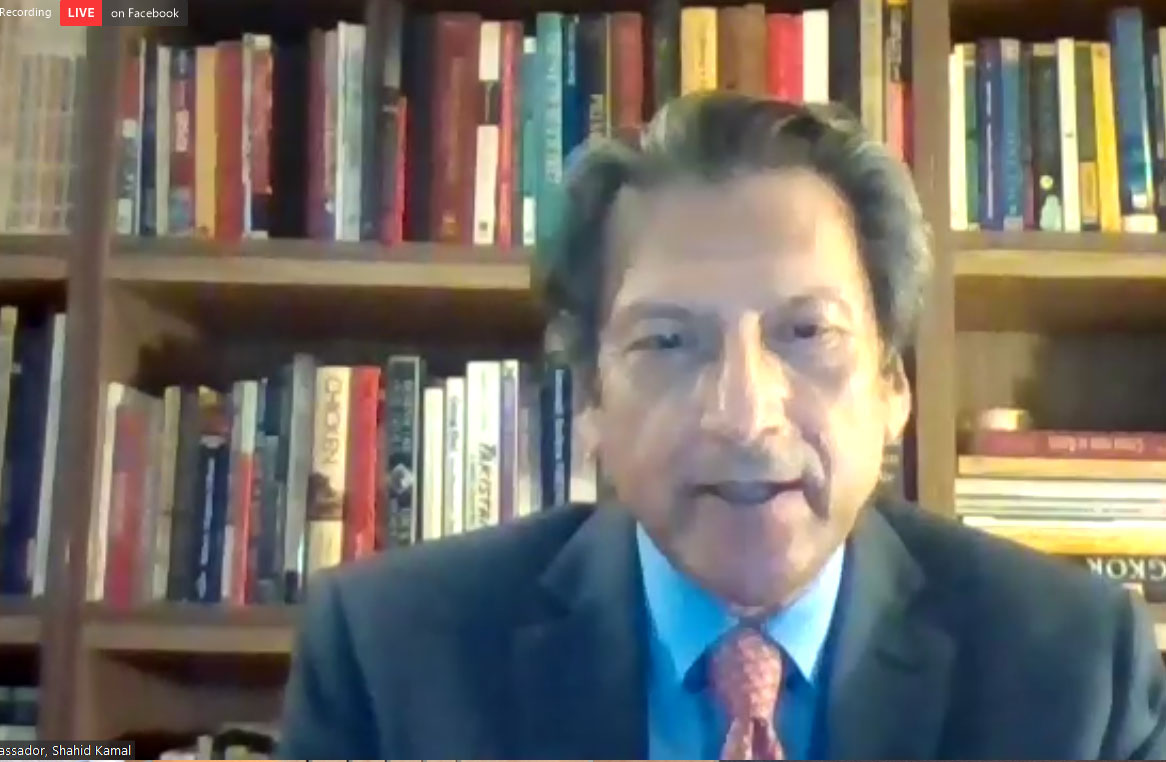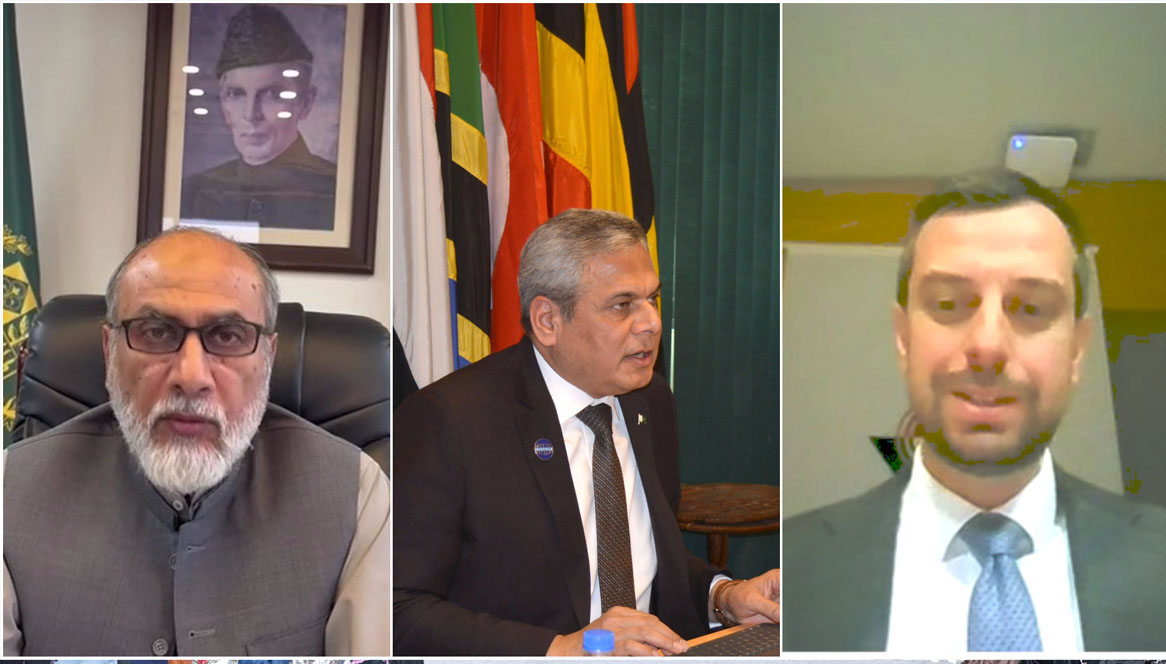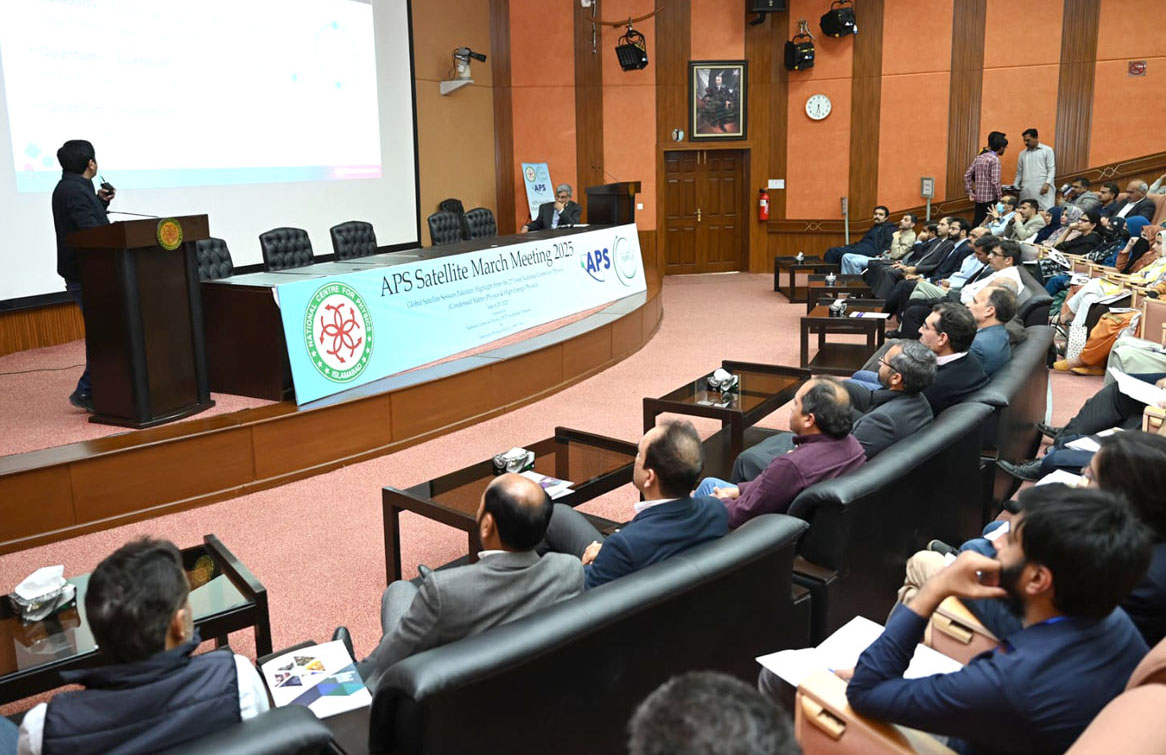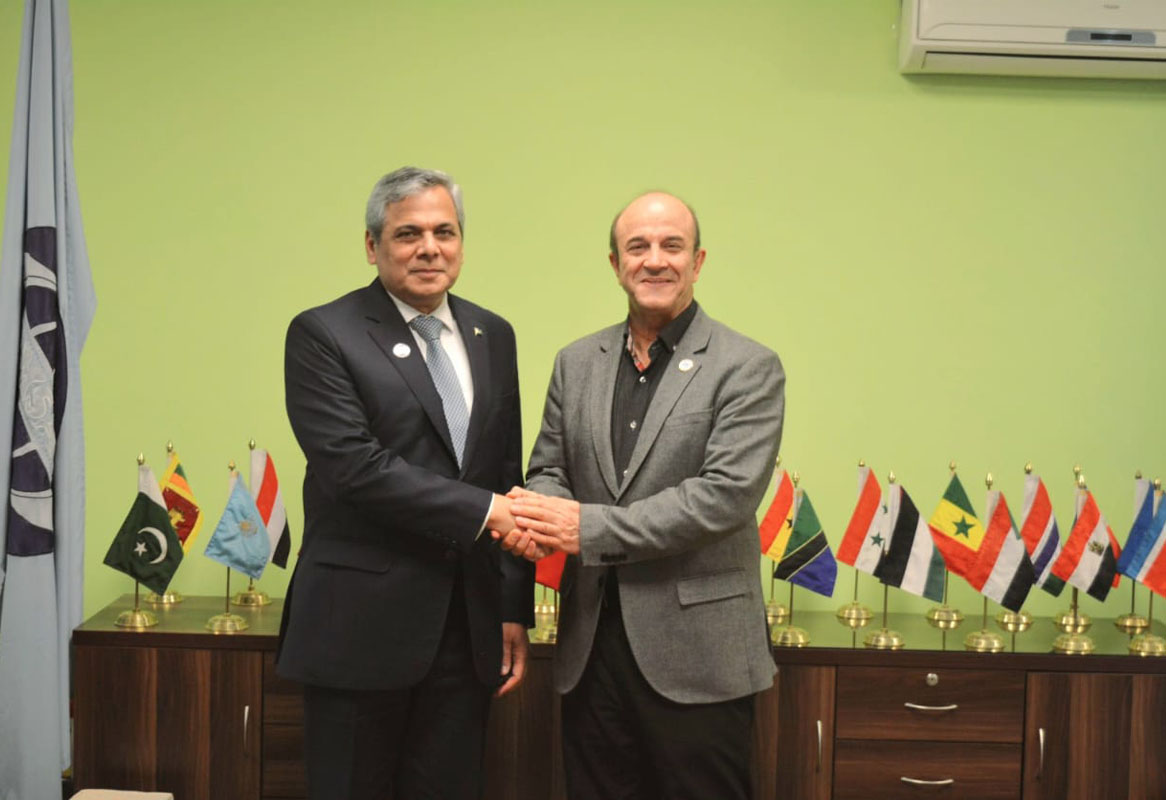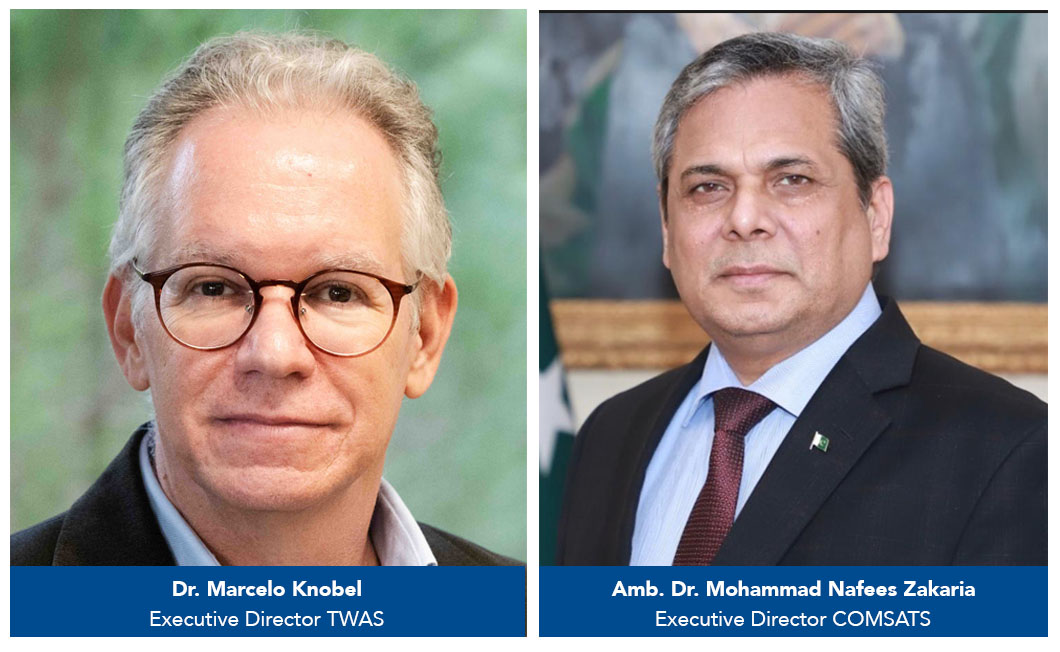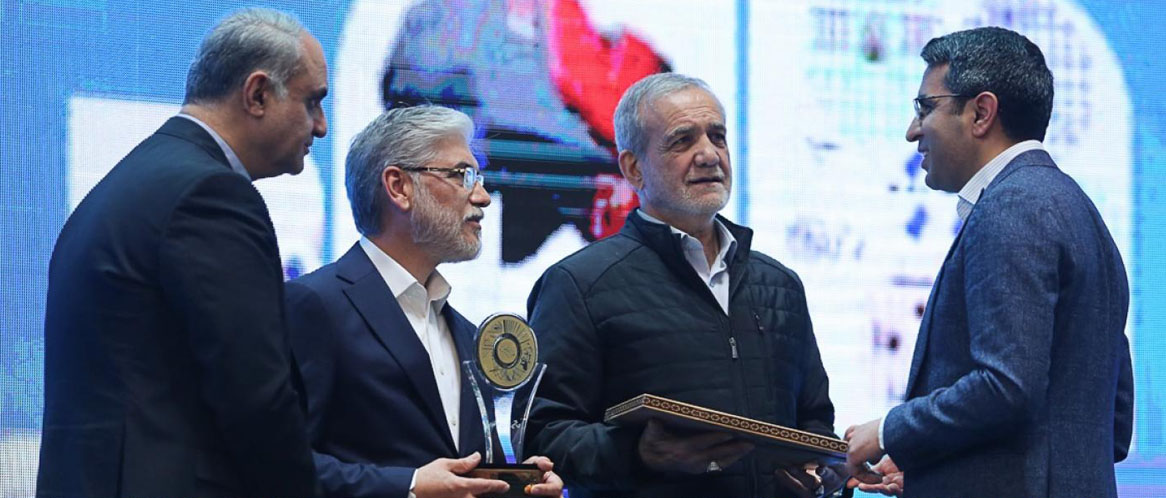COMSATS Centre for Climate & Sustainability (CCCS) and Centre of Excel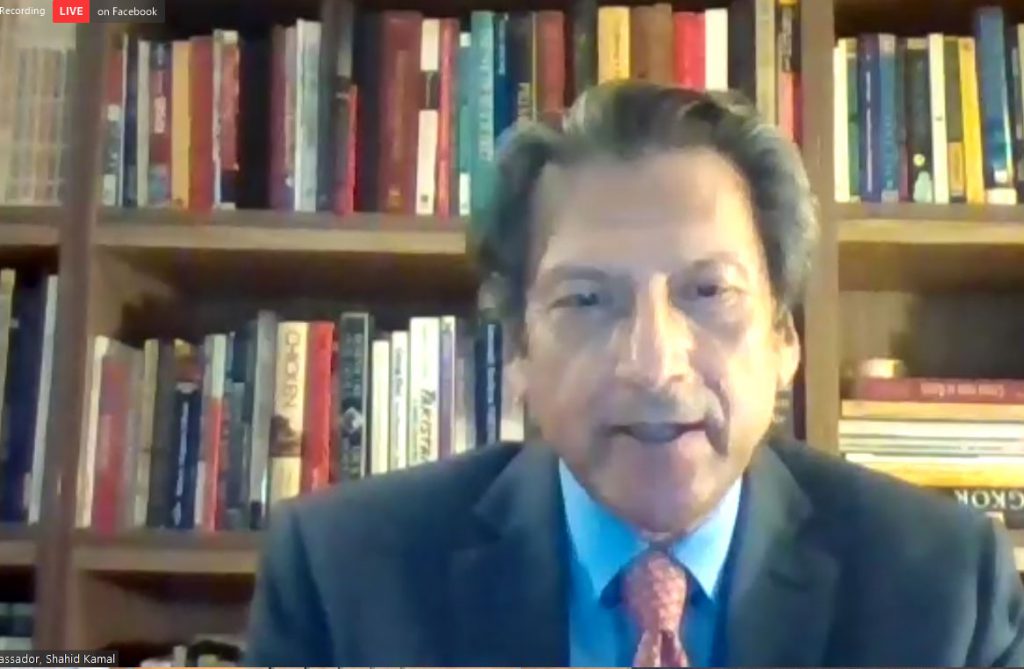 lence for Research & Applied Sciences on Climate Change & Sustainable Development of National Research Centre (C3SD – NRC), Egypt, jointly organized a webinar on Climate Change Risks and Impacts on Vulnerable Communities Post COVID-19, on 8th July 2020. The webinar was aimed at bringing stakeholders from Global South to share information, experience and knowledge on addressing challenges of COVID-19, environmental sustainability and food security.
lence for Research & Applied Sciences on Climate Change & Sustainable Development of National Research Centre (C3SD – NRC), Egypt, jointly organized a webinar on Climate Change Risks and Impacts on Vulnerable Communities Post COVID-19, on 8th July 2020. The webinar was aimed at bringing stakeholders from Global South to share information, experience and knowledge on addressing challenges of COVID-19, environmental sustainability and food security.
Speakers from six scientific and research institutions, including four CCCS Network members in Jamaica, Palestine, Pakistan and Sri Lanka, respectively, participated in the webinar that was moderated by Prof. Dr. Ashraf Shaalan, Chairperson COMSATS Coordinating Council and Director of C3SD – NRC, and Ambassador (R) Shahid A. Kamal, Founder and Head of CCCS.
The speakers at the webinar included: Dr. (Ms.) Ilmi G. N. Hewajulige, Additional Director General (R&D) at Industrial Technology Institute, Sri Lanka; Prof. Hesham A. El Enshasy, Director of Institute of Bio-products Development, University Technology Malaysia (UTM), Malaysia; Prof. Rania Abu Seir, Professor of Medical Sciences at Al-Quds University (AQU), Palestine; Dr. Anjum Rasheed, Assistant Professor at Centre for Climate Research & Development (CCRD), COMSATS University Islamabad (CUI), Pakistan; Eng. Sherif Abdel Reheem, Head of Climate Change Central Department, Egypt; and Ms. Leslie Hoo Fang, Research Scientist at International Centre for Environment & Nuclear Sciences (ICENS), Jamaica.
Webinar was opened by Prof. Shaalan who remarked that COVID-19 pan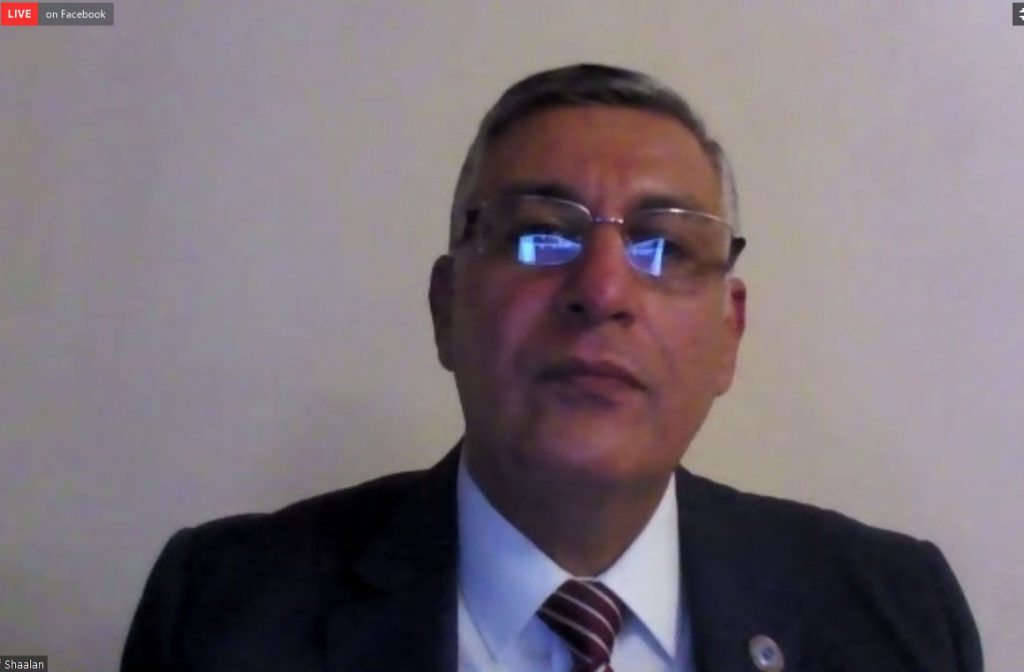 demic is having devastating effects on socio-economic and health situation of the world. He also emphasized that climate change is a long term pandemic that, if left unchecked, could have worst implications than the ongoing pandemic.
demic is having devastating effects on socio-economic and health situation of the world. He also emphasized that climate change is a long term pandemic that, if left unchecked, could have worst implications than the ongoing pandemic.
Co-chairing the webinar, Ambassador Kamal informed that COMSATS has set up CCCS network to work on the linkages of climate change and sustainable development and welcomed the initiative of C3SD-NRC to hold the webinar. He said CCCS had mobilized experts from different regions since COVID-19 pandemic has enhanced importance of environmental sustainability sharing in tackling global challenges like the pandemic, food security and environmental protection. He said realization of the need to integrate economic recovery from COVID-19 with climate action and sustainable development is growing.
Some key points highlighted by the speakers included:
- Effect of COVID-19 on global action against climate change, green
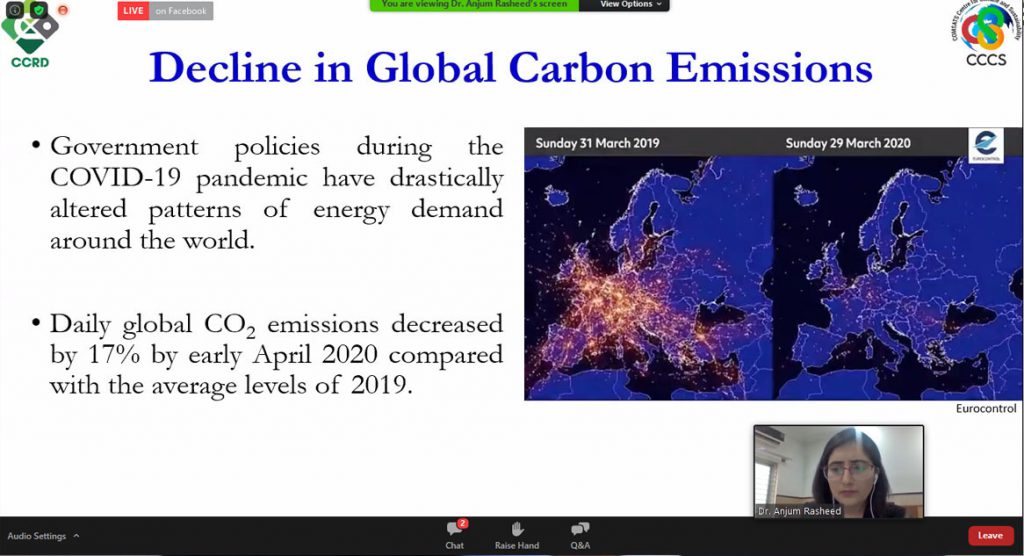 transition and recovery being imperative for addressing climate crisis in the long run;
transition and recovery being imperative for addressing climate crisis in the long run; - Global carbon emissions and aviation footprint stats (dropped 17 and 60 percent, respectively) compared to 2019 and postponement of UNFCCC COP 26 to 2021 and SDGs review.
- Importance of environmental sustainability in the backdrop of COVID-19 pandemic, especially challenges due to global warming, air pollution, water contamination, toxic soil, and loss of biodiversity.
- Importance of ensuring food and nutrition security in the face of global warming, higher frequency of natural disasters and the challenges Sri Lanka is facing as a country highly vulnerable to impacts of climate change.
- Interventions by the Government of Jamaica in reducing GHG emi
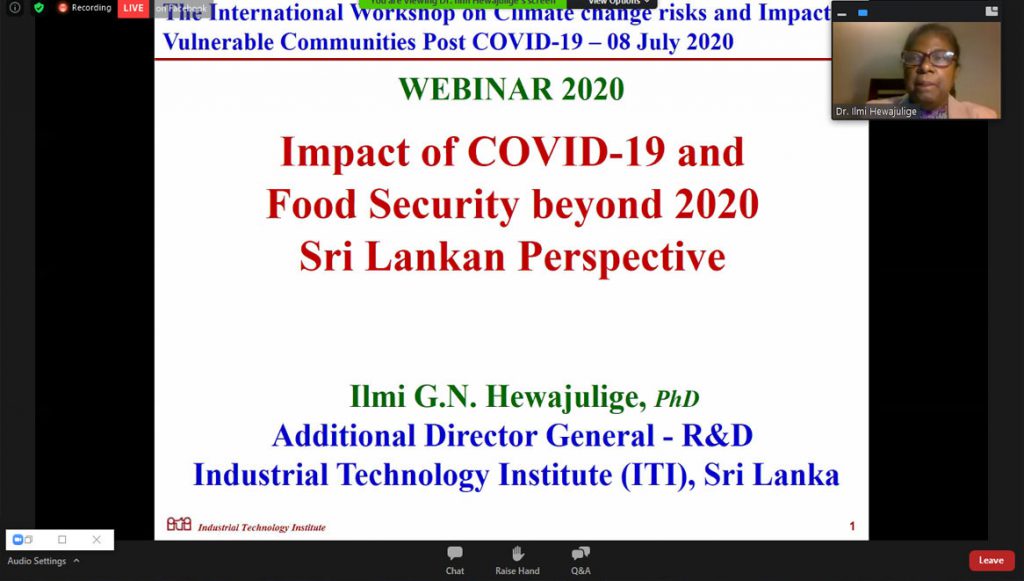 ssions, fighting COVID-19 pandemic and ensuring food security;
ssions, fighting COVID-19 pandemic and ensuring food security; - Clinical and epidemiological issues of Palestine during the pandemic, challenges in fighting COVID-19 with limited healthcare capacity, and role of telemedicine.
The Webinar resulted in highlighting the significance of South-South Cooperation and contribution of experts from the Global South in addressing global challenges relating to health and well-being, environmental protection and sustainable development.

